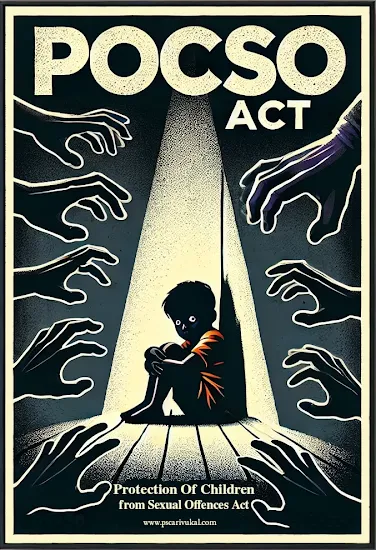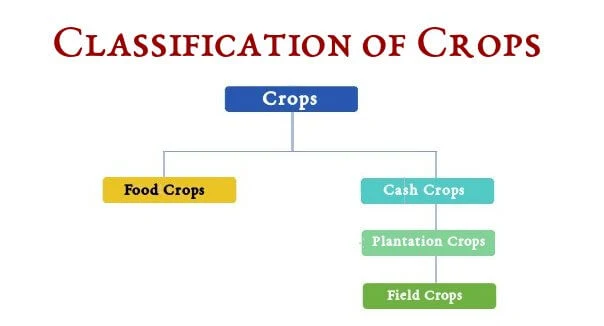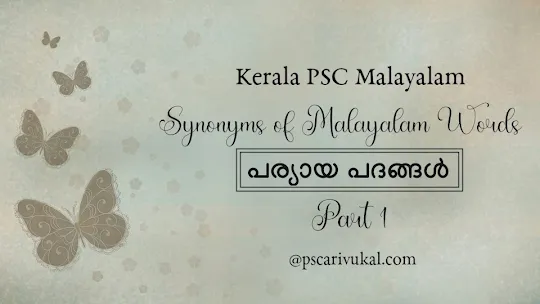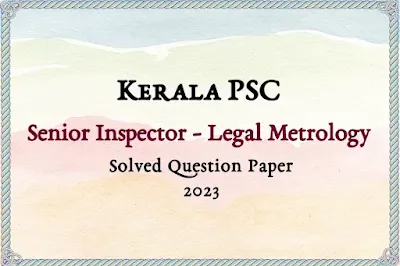Table of Contents
Overview:
- POCSO – Protection of Children from Sexual Offences Act.
- Administered by – Ministry of Women and Child Development.
- Aim – To combat child pornography and enforce strict measures against individuals committing or recording sexual offenses against children.
- Total Chapters – 9
- Total Sections – 46
- Chapter on Crimes and Punishments – Chapter 2 (Sections 3 to 11)
- Reporting Time Limit for POCSO Cases – No Limit.
- Toll-Free Number for Reporting – 1098.
- Online Complaint System – POCSO E-Box.
- Launch Date – August 26, 2016.
- Inaugurated by – Maneka Gandhi.
- Year of Amendment – 2019.
Legislative Timeline
- Rajya Sabha Approval – May 10, 2012
- Lok Sabha Approval – May 22, 2012
- Presidential Assent – June 19, 2012
- Date of Enactment – June 19, 2012
- Came into force in India on – November 14, 2012.
What is POCSO Act?
The Protection of Children from Sexual Offences (POCSO) Act, enacted in 2012, is a pivotal piece of legislation in India aimed at safeguarding children from sexual abuse and exploitation.
The POCSO Act was influenced by the United Nations Convention on the Rights of the Child, to which India became a signatory on December 11, 1992.
This Act addresses the rising concerns of sexual crimes against minors, reflecting the need for a robust legal framework to ensure the protection of children's rights.
It establishes clear definitions of sexual offences against children, stipulates stringent punishments, and emphasizes the importance of a child-friendly judicial process.
Unlike most laws, which are first passed in the Lok Sabha and then in the Rajya Sabha, the POCSO Act was the first to be passed in the Rajya Sabha before being considered by the Lok Sabha.
Key Provisions of the POCSO Act
- Definition of Child: A person below the age of 18 years regardless of gender.
- Types of Sexual Offenses:
- Penetrative Sexual Assault & Punishment (Section 3)
- Aggravated Penetrative Sexual Assault (Section 5): Involves penetration of the child's body.
- Sexual Assault (Section 7): This includes physical contact with a child with sexual intent.
- Aggravated Sexual Assault (Section 9)
- Sexual Harassment (Section 11): Any behavior that exploits the child’s vulnerability in a sexual manner
.
Reporting Mechanism & Legal Proceedings
- Filing a Complaint:
- Who can report: Section 19, Parents, guardians, or any person who suspects abuse.
- Where to report: Reports can be made to the local police or designated authorities.
- Role of Police: Upon receiving a report, police must register an FIR and initiate an investigation. A statement should be recorded within 30 days of a POCSO case being reported. (Women of not less than S.I rank should be in police uniform and not to record the statement.) They are also required to notify the Child Welfare Committee (CWC) within 24 hours of receiving the report.
- Investigation Process: The police are required to conduct a quick and sensitive investigation, ensuring that the child’s dignity is maintained.
- Trial Process: The act mandates that trials be conducted in special courts to expedite the process and minimize trauma for the child. Under the POCSO Act, the trial must be completed within one year. (Criminal trial will be held in secret.)
Rights of the Child Victim
- Right to Privacy: Section 23; The identity of the child victim must be protected at any stage of the judicial process. Victims are not subjected to a trial by media.This is meant to protect the child from social stigma and trauma.
- Right to Free Legal Services: Section 40; Victims are entitled to legal aid and assistance throughout the legal process. Proceedings are held in-camera to protect the identity and dignity of the child. Special courts are established for faster trials.
- Part IV, Directive Principle of State Policy Article 41 and Part V, Fundamental Duties Article 51(A) of the constitution ensures the right to Free Legal Services for the child victim.
- Counseling and Rehabilitation: The Act ensures that the child is provided immediate care, medical examination, and psychological assistance. It also mandates free first-aid or medical treatment for the child.
Penalties & Punishments of POCSO Act, 2012
| Section | Offense | Punishment |
|---|---|---|
| Section 3 | Penetrative Sexual Assault | Imprisonment not less than 7 years, extendable to life imprisonment & a fine. (Section 4) |
| Section 5 | Aggravated Penetrative Sexual Assault (committed by a relative, police officer, etc.) | Imprisonment not less than 10 years, extendable to life imprisonment & a fine. (Section 6) |
| Section 7 | Sexual Assault (touching private parts, etc., without penetration) | Imprisonment not less than 3 years, extendable to 5 years, and a fine. (Section 8) |
| Section 9 | Aggravated Sexual Assault (committed by a person in a position of trust or authority) | Imprisonment not less than 5 years, extendable to 7 years, and a fine. (Section 10) |
| Section 11 | Sexual Harassment (unwelcome sexual advances, gestures, etc.) | Imprisonment up to 3 years, and a fine. (Section 12) |
| Section 13 | Use of a child for pornographic purposes | Imprisonment not less than 5 years, extendable to 7 years, and a fine. (Section 14) |
| Section 15 | Storage of pornographic material involving children | Imprisonment up to 3 years, and a fine |
| Section 16 | Attempt to commit any of the above offenses | Punishable with imprisonment of half the sentence prescribed for the offense, and a fine. (Section 18) |
| Section 19 | Obligation to report offenses (failure to report child sexual abuse) | Imprisonment up to 6 months, or a fine, or both. (Section 21) |
| Section 20 | Failure to report a known commission of an offense by any person | Imprisonment up to 1 year, or a fine, or both. (Section 21) |
| Section 21 | Punishment for failure to report or record child abuse by a public servant | Imprisonment up to 1 year, or a fine, or both. |
| Section 22 | False complaints or false information of child sexual abuse | Imprisonment up to 6 months, or a fine, or both (if proven malicious). |
| Section 23 | Punishment for disclosure of the identity of the child | Imprisonment up to 1 year, or a fine, or both. |
Compensation to the Victim
Support Services
Summary of Chapters & Sections of POCSO Act 2012
| Chapter | Content/Section |
|---|---|
| Introduction | Enacted to protect children from sexual offences, including assault, harassment, and pornography. Establishes Special Courts for trials. |
| Chapter I: Preliminary | Defines key terms: child (under 18), sexual assault, penetrative sexual assault, aggravated assault, and special courts (Section 2). |
| Chapter II: Sexual Offences & Punishments |
|
| Chapter III: Pornographic Offences Use of a child for pornography | (Section 13): 5-7 years (Section 15). Severe penalties for related offences. |
| Chapter IV: Abetment | Abetment punishable by up to half of life imprisonment (Section 15). |
| Chapter V: Reporting Procedures | Report to Special Juvenile Police Unit or local police (Section 19). Immediate care & protection for the child if needed (Section 19 (5)). (Section 20): requires media, studios, & photographic facilities to report any sexually exploitative material or child pornography to the local police. (Section 22): Punishment for false compliant or failure to report with imprisonment to six months or fine or both. However, a child who makes a false complaint is not punishable under the law |
| Chapter VI: Recording Statement | Child's statement recorded sensitively, preferably at residence, by a woman officer not in uniform (Section 24). (Section 26): The Magistrate or police officer shall record the child's statement in the presence of trusted individuals, using a translator or interpreter if needed, and may seek assistance from a special educator for children with disabilities, ensuring payment for services and, where possible, recording the statement using audio-video electronic means. (Section 27): Medical examination of a child |
| Chapter VII: Special Courts | Designated courts for quick trials (Sections 28-32). Protect child’s identity, ensure child-friendly atmosphere, and limit aggressive questioning. |
| Chapter VIII: Procedure of Special Courts | Special courts to ensure dignity of the child during testimony (Sections 33-38). (Section 36): ensures that the child that the child is not exposed to the accused during the time of recording of evidence |
| Chapter IX: Miscellaneous |
|
The POCSO (Amendment) Bill, 2019
- Year of Amendment – 2019.
- Rajya Sabha Approval Date – 24 July 2019.
- Introduced in Rajya Sabha by – Smriti Irani (Former Union Minister for Women & Child Welfare)
- Smriti Irani's Tenure: May 2019 – June 2024.
- Current Union Minister for Women & Child Welfare – Annpurna Devi.
- Lok Sabha Approval Date – 1 August 2019.
- Introduced in Lok Sabha by – Virendra Kumar (Former Minister of state for Women & Child Welfare)
- 29th Minister of Social Justice and Empowerment – Virendra Kumar.
- Presidential Assent Date – 5 August 2019.
- Signed by – President Ram Nath Kovind.
Key Highlights of POCSO Act (Amendment) 2019
Stronger Penalties for Pornography: The amendment provided detailed provisions on punishments for using children for pornography and for the possession of child pornography, which were not specified as thoroughly in the 2012 Act.
Enhanced Minimum Punishments: The minimum punishment for penetrative sexual assault (increased from 7 to 10 years) and aggravated penetrative sexual assault (death penalty in addition to life imprisonment) if the victim was under 16 was increased to provide a stronger deterrent.
POCSO Act 2012 vs POCSO Act 2019
Landmark Judgements on POCSO Act
Nipun Saxena v. Union of India (2019)
- Case: The Supreme Court addressed the issue of preserving the identity of child sexual abuse victims under the POCSO Act.
- Decision: The Court mandated that the identity of victims must be protected at all costs, emphasizing the need for sensitive handling of cases to prevent further trauma and ensure the privacy of victims is maintained. It also directed the government to implement measures for the effective enforcement of the Act, including guidelines to safeguard victims' identities.
Alakh Alok Srivastava v. Union of India and Others (2018)
- Case: The Supreme Court ruled that the mandatory death penalty for the rape and murder of a minor was unconstitutional.
- Decision: The court held that the death penalty should be imposed only in the rarest of rare cases, and that the mandatory death penalty violated the right to life and liberty guaranteed under the Constitution.
Implementation Challenges
- Awareness and Education: There is a lack of awareness about the POCSO Act among the public and law enforcement agencies. Community education is vital.
- Stigma and Reporting: Societal stigma often discourages victims from coming forward. Cultural attitudes must shift to support victims.
- Resource Constraints: Many states lack the resources necessary for setting up Special Courts and adequately training law enforcement.
- Delayed Justice: Procedural delays and court backlogs can prolong the trauma for victims, countering the Act's intent for speedy justice.
- Inconsistent Enforcement: Variability in the implementation of the Act across states can lead to inconsistencies in case handling.
Why in News recently?
The Supreme Court, in a landmark ruling, declared that watching or merely storing child pornographic material constitutes an offense under POCSO Act.
A three-judge bench, led by Chief Justice D. Y. Chandrachud, overturned a Madras High Court decision that had earlier ruled downloading or watching child pornography was not punishable under the POCSO or IT Act.
The Supreme Court ruled that the High Court had erred in its judgment and remitted the case back to the sessions court.
The bench also recommended that Parliament replace the term "child pornography" with "Child Sexual Exploitative and Abuse Material (CSEAM)" in legal proceedings.
Justice J. B. Pardiwala, reading the verdict emphasized that the mere storage of such material must involve intent to gain or distribute it for the offense to be established.
The court clarified that actual transmission or facilitation of transmission must be present for the offense under Section 15(2) of POCSO to apply. The case stemmed from a previous Madras HC ruling, which had quashed charges against a man accused of downloading and watching child pornography.
The ruling sparked a challenge from the NGO Just Right for Children Alliance, which argued that such activities encourage child exploitation. The Supreme Court's ruling is seen as a significant move towards tightening laws against child sexual abuse material.
Conclusion
The POCSO Act is a crucial legislative framework aimed at safeguarding children from sexual offenses, ensuring justice, and promoting their overall well-being. Understanding its provisions and implications is essential for effective implementation and advocacy.
Also Refer:
Thanks for reading!!!








Post a Comment
Post a Comment